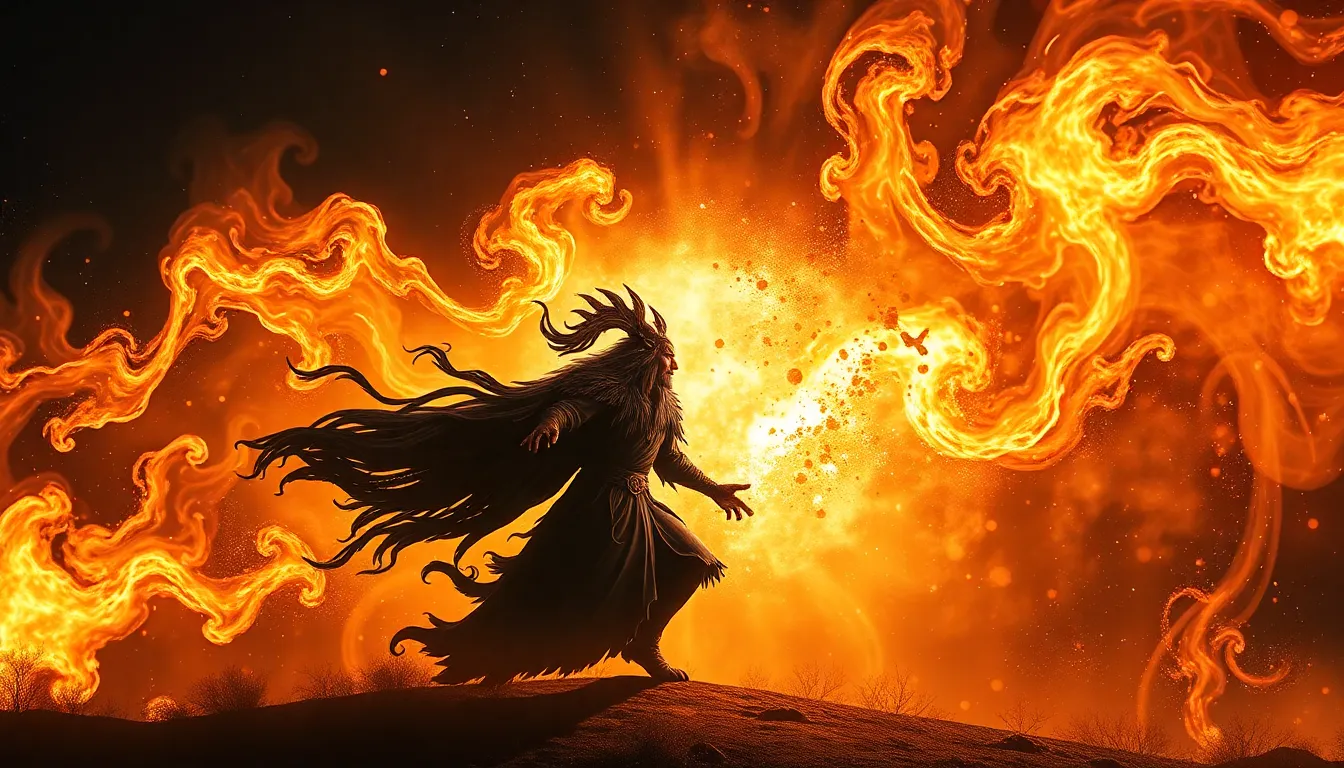The Most Startling End of the World Myths Revealed
I. Introduction
End of the world myths have fascinated humanity for centuries, serving as cautionary tales, expressions of existential dread, or simply as entertainment. These myths, ranging from religious prophecies to modern conspiracy theories, reflect deep-seated fears about our future and the fate of civilization.
Understanding these myths is crucial, as they can influence societal behavior, provoke panic, or even inspire action. This article will delve into various end of the world myths, examining their historical contexts, cultural significance, and the psychological factors that sustain them.
The structure of this article will take you through historical contexts of apocalyptic beliefs, notable events that sparked widespread fear, and the role of popular culture in perpetuating these myths.
II. Historical Context of Apocalyptic Myths
Apocalyptic myths have roots in ancient civilizations, where they often intertwined with religious beliefs and cultural narratives.
A. Origins of End Times Beliefs in Ancient Civilizations
Many ancient civilizations had their own end of the world myths. For example:
- The Sumerians believed in catastrophic floods as a form of divine retribution.
- In ancient Egyptian mythology, the end times were associated with the sun god Ra’s daily journey through the underworld.
- The Norse had Ragnarok, a series of events leading to the death of gods and the rebirth of the world.
B. Religious Influences: Christianity, Islam, and Hinduism
Major world religions have significantly shaped apocalyptic beliefs:
- Christianity’s Book of Revelation describes a final judgment and the end of days.
- In Islam, the Day of Judgment (Yawm al-Qiyamah) is a central belief, where all souls are resurrected for judgment.
- Hinduism speaks of cycles of creation and destruction, with the end of the current cycle leading to a new beginning.
C. The Role of Folklore and Cultural Narratives
Folklore and cultural narratives often provide a framework for understanding disasters and societal changes, embedding apocalyptic themes in local traditions. These stories serve as a way to explain the unexplainable and offer moral lessons on human behavior and divine justice.
III. The Y2K Phenomenon: A Technological Apocalypse
The year 2000 brought with it the Y2K scare, a widespread concern that computer systems would fail when the date rolled over from 1999 to 2000.
A. Overview of the Y2K Scare
As the millennium approached, fears grew that computers would malfunction, leading to global chaos in financial systems, utilities, and emergency services.
B. Public Reaction and Preparedness
In the lead-up to Y2K, many people engaged in:
- Stockpiling food and water.
- Purchasing generators.
- Attending preparedness workshops.
C. Lessons Learned and Misconceptions
Ultimately, the transition to the year 2000 was relatively uneventful, serving as a reminder of how fear can be amplified by media and societal anxiety. It highlighted the importance of technological preparedness but also showcased the tendency for misconceptions to spiral out of control.
IV. Mayan Calendar and the 2012 Prophecy
The Mayan calendar garnered significant attention leading up to December 21, 2012, when some believed it predicted the end of the world.
A. Analysis of the Mayan Calendar
The Mayan Long Count calendar was designed to track celestial cycles and was mistakenly interpreted as a prophecy of apocalyptic significance.
B. Misinterpretations and Hype Surrounding 2012
Media coverage and popular culture fueled the hype, leading to various theories about catastrophic events, including natural disasters and alien invasions.
C. The Aftermath: What Actually Happened?
When December 21, 2012, came and went without incident, many were left questioning the validity of such predictions and the factors leading to their widespread acceptance.
V. The Role of Natural Disasters in Apocalypse Myths
Natural disasters have historically been linked to apocalyptic narratives, as they evoke fear and uncertainty about humanity’s survival.
A. Earthquakes, Tsunamis, and Climate Change Predictions
Major natural disasters often lead to speculation about their significance as signs of the impending apocalypse.
B. How Media Sensationalism Fuels Fear
Media coverage can exacerbate fears surrounding natural disasters, leading to public panic and a sense of impending doom.
C. Scientific Perspectives on Natural Catastrophes
While natural disasters pose real threats, scientists emphasize that they are part of Earth’s natural processes and not necessarily harbingers of the end times.
VI. Nuclear Fallout: Cold War and Beyond
The threat of nuclear annihilation has been a significant source of apocalyptic anxiety since the Cold War.
A. Historical Context of Nuclear Anxiety
During the Cold War, the potential for nuclear war led to widespread fear and the creation of numerous apocalyptic narratives.
B. The ‘Doomsday Clock’ and Its Significance
The Doomsday Clock symbolizes the likelihood of a global catastrophe, with its hands moving closer to midnight as tensions rise.
C. Modern-Day Concerns and Ongoing Threats
With ongoing nuclear threats from rogue states and geopolitical tensions, the fear of nuclear apocalypse remains relevant today.
VII. The Rise of Conspiracy Theories and the Apocalypse
Conspiracy theories surrounding apocalyptic scenarios have gained traction in recent years, fueled by the internet and social media.
A. Overview of Popular Conspiracy Theories (e.g., Nibiru, Planet X)
Theories such as the existence of Nibiru, a supposed rogue planet, have captivated believers, linking it to catastrophic events.
B. Psychological and Social Factors Behind Belief in Conspiracies
Psychological factors, including a sense of powerlessness and the desire for simple explanations, contribute to the appeal of conspiracy theories.
C. The Impact of Social Media in Spreading Myths
Social media platforms amplify conspiracy theories, allowing them to spread rapidly and gain traction among certain groups.
VIII. Environmental Catastrophes and Extinction Events
Environmental issues have led to fears of extinction and apocalyptic scenarios, particularly in the context of climate change.
A. Analysis of Extinction-Level Events in Earth’s History
Earth has experienced several extinction events, prompting debates about the potential for future occurrences driven by human activity.
B. Current Environmental Issues and Their Perceived Threats
Issues such as deforestation, pollution, and climate change are often framed in apocalyptic terms, raising awareness but also inducing fear.
C. Debunking Myths Around Climate Change Apocalypse
While climate change poses significant challenges, many narratives exaggerate the immediacy and severity of its consequences.
IX. The Role of Popular Culture in Shaping Apocalypse Myths
Popular culture significantly influences perceptions of apocalyptic scenarios through movies, books, and television.
A. Influence of Movies, Books, and Television
From blockbuster films like “Armageddon” to dystopian novels like “The Road,” media representations shape and often distort public understanding of apocalyptic events.
B. How Fiction Reflects and Distorts Reality
Fictional depictions can highlight real issues while also perpetuating myths, leading to a skewed perception of risk and reality.
C. The Impact on Public Perception
As apocalyptic narratives permeate culture, they can lead to increased anxiety and concern over global issues, influencing public policy and individual behavior.
X. Conclusion
End of the world myths, whether rooted in ancient beliefs, modern fears, or popular culture, continue to capture our imagination. Understanding these myths allows us to navigate the complexities of human psychology and societal behavior. By critically assessing these narratives, we can mitigate fear, encourage informed discussions, and foster a more rational approach to




